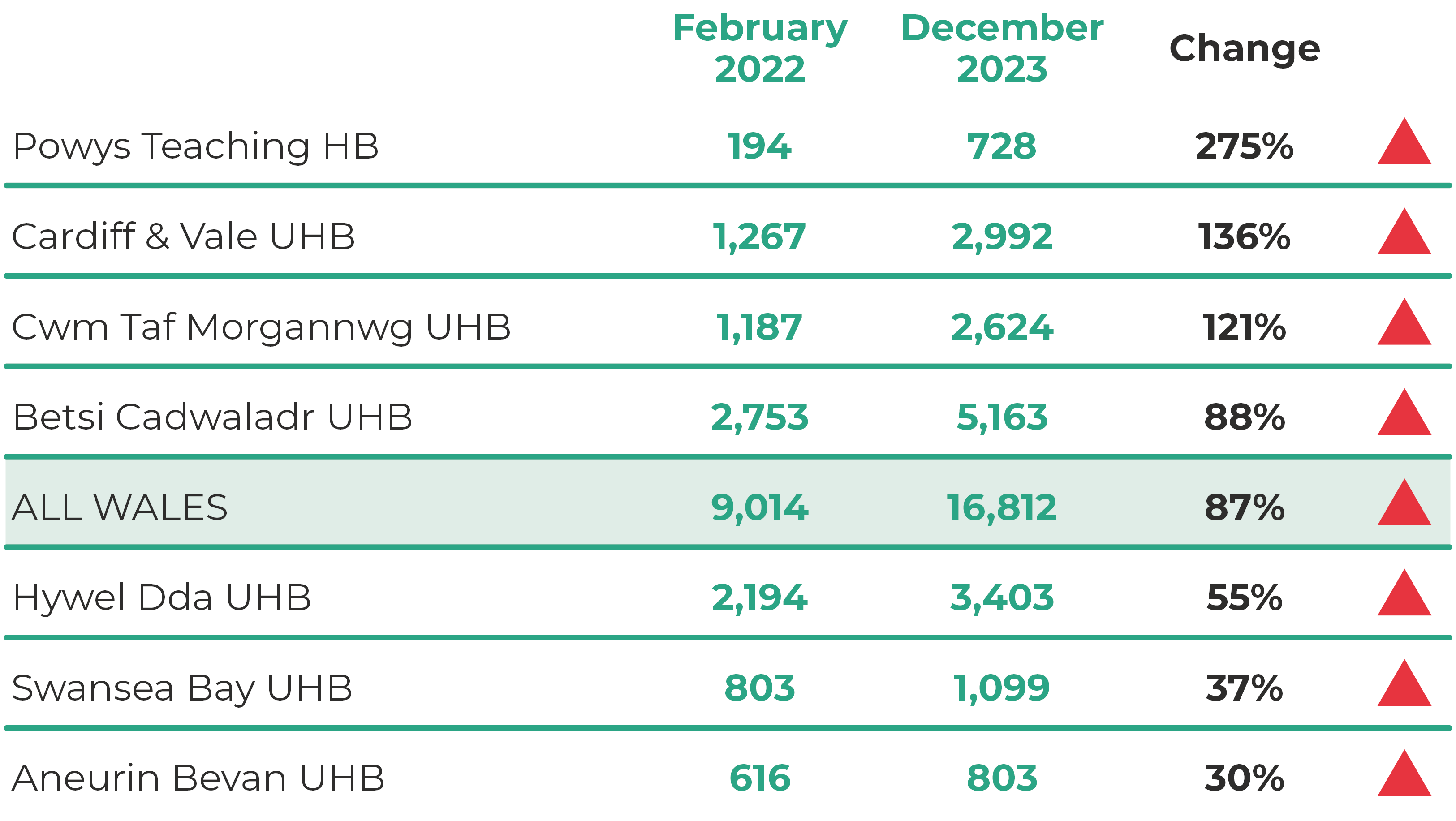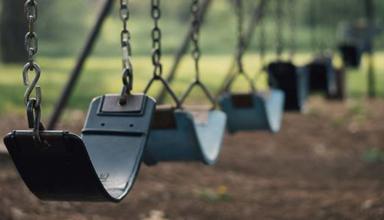A growing number of people in Wales are seeking a diagnosis for ADHD or autism. Many health boards have seen a substantial rise in referrals to neurodevelopmental services, with monthly referrals in one area reported to have doubled over the past 4 years.
In July 2022, the Welsh Government responded to this growing demand by setting up a 3 year, all-age, national improvement programme for neurodevelopmental conditions.
This article explores the main issues the improvement programme seeks to address, and summarises some of the actions the Welsh Government is taking to respond to growing pressures on neurodevelopmental services.
Growing demand for diagnostic assessments
There has been an increase in the number of people across the UK receiving a diagnosis of ADHD or autism. The reasons behind this increase are complex and disputed. Stakeholders have pointed to a range of potential contributory factors, including: a greater awareness of neurodevelopmental conditions; broadened diagnostic criteria; possible misdiagnosis or overdiagnosis; and, an increase in the prevalence of these conditions.
In Wales, there are different referral pathways and neurodevelopmental services for adults and for children. This means there are different data collection process and performance targets depending on the service. This can make it difficult to understand the full picture of growing demand for assessments.
Whilst the Welsh Government does generally publish data about mental health assessments, it does not yet publish regular data on the number of people waiting for a neurodevelopmental assessment.
Data published through Freedom of Information releases provides an indication of the growing pressure on services. It shows a rise in the number of children and young people waiting for an ADHD or ASD (autism spectrum disorder) assessment of 87% between February 2022 and December 2023.
Figure 1: Number of children and young people waiting to start an ADHD or ASD neurodevelopment assessment in February 2022 and December 2023

Source: Senedd analysis of data captured in census snapshots taken at the end of February 2022 and December 2023, and published through Welsh Government FOI releases.
This data is deemed by the Welsh Government to be ‘management information’ only, meaning that it is currently not considered of a suitable quality to publish due to, for example, inconsistences in how health boards are interpreting and applying the definitions that support the data collection.
Long wait times
A Welsh Government review, conducted between 2019 and 2022, found that demand for diagnostic assessments had outstripped the capacity of neurodevelopmental services during this period, leaving both adults and children facing long wait times. The review found that for roughly every two people referred for a diagnostic assessment, only one assessment had taken place.
Addressing this growing demand is a priority within the Welsh Government’s programme of reform, with workstreams aimed at tackling urgent need and building sustainable services. The NHS Delivery Unit has undertaken a review of children and young people’s neurodevelopmental services within all health boards across Wales. It is intended that the review will inform national actions to address immediate pressures on assessment waiting times, as well as providing recommendations to individual health boards in respect of children’s neurodivergence services.
The data available suggests that services are not meeting the Welsh Government’s target that 80% of children and young people should receive an assessment within 26 weeks. In June 2023, 67% of children and young people had been waiting for 26 weeks or more for an ADHD or ASD assessment, with 45% having waited over a year. Several neurodevelopmental services state on their website that it can take up to two or three years to receive a first appointment.
There is currently no waiting time policy or target for adults. Those seeking an autism diagnosis through the Integrated Autism Services (IAS) in the last quarter of 2022-23 faced an average wait of 95.1 weeks.
Some health boards have indicated that a lack of financial resources is a barrier to reducing wait times and building sustainable services. Other services have suggested that recruiting staff and implementing new ways of working are the key challenges to meeting growing demand.
Moving towards needs-led services for children and young people
Given the wait times, there has been a renewed focus on providing access to early help and support – particularly for children and young people. In 2022, the Children’s Commissioner found that children and families can receive “very little if any support” whilst waiting to be assessed for a neurodevelopmental condition.
In 2020, the Welsh Government’s Together for Children and Young People Programme set out a future vision for neurodevelopmental support and services in Wales. It outlined an approach in which educational and social resources are provided according to a child’s needs rather than being wholly dependent on a diagnosis. It said that this approach could help to ensure those who fall short of diagnostic thresholds still receive the support they need. According to the Welsh Government’s review of neurodevelopmental services, early access to help and support could potentially reduce demand for diagnostic assessments.
The Welsh Government aims to support the development of early help and support services for children and families as part of the neurodivergence improvement programme. Examples of early support include family liaison services, which provide information, support and signposting ahead of a diagnosis, or tools to help families and professionals identify what support a child or young person might need.
However, across the range of support services, Wales may still be some distance away from achieving a needs-led approach. The Welsh Government is in the process of changing how learners with special educational or additional learning needs (ALN) are supported. Ministers have repeatedly stated that entitlement to support within this system is not dependent on a diagnosis. But a report from the Children, Young People and Education Committee published in July 2024 came to the conclusion:
…the ALN reforms are supposed to be needs led, rather than diagnosis led… but it’s clearly not happening in practice. So the combination of long waiting times and support not being put in place until there is a clear diagnosis is a having a big impact.
It also found that families were paying for expensive private assessments (the status of which is referred to in the Code of Practice on the Delivery of Autism Services). This issue of local authorities not accepting a private diagnosis, along with other case studies was highlighted by the Children’s Commissioner in March 2023 and showed that some families were still struggling to get support without a diagnosis.
Other challenges accessing assessments and support
Stakeholders have highlighted a number of other challenges within neurodevelopmental support services.
Long wait times have led some families to use paid-for private assessment services. However, as referred to above, there is no guarantee that a private diagnosis will be accepted by GPs or education providers, leading to difficulties with accessing treatment through the NHS. The Welsh Government has said it intends to review guidance on accepting private diagnoses and will develop a national approach to contracting, accepting and acting on private assessments.
The additional complications sometimes associated with getting a Welsh-language assessment have been highlighted in the Senedd and by the Children’s Commissioner. The Welsh Government has stated it will consider how to ensure equitable access for those who require Welsh language services.
Finally, there is currently no consistent support offer for adults with neurodevelopmental conditions other than autism. One of the key actions suggested in the Welsh Government’s review of neurodevelopmental services was to develop a national support offer for both adults and children. It recommended this offer should set out which types of support require a diagnostic assessment before they can be accessed. The Welsh Government is also exploring all-age support services for ADHD and Tourette syndrome and developing specifications for a national approach for service reform.
The improvement programme for neurodevelopmental conditions is currently set to run until 2025.
Article by Gwennan Hardy, Senedd Research, Welsh Parliament






